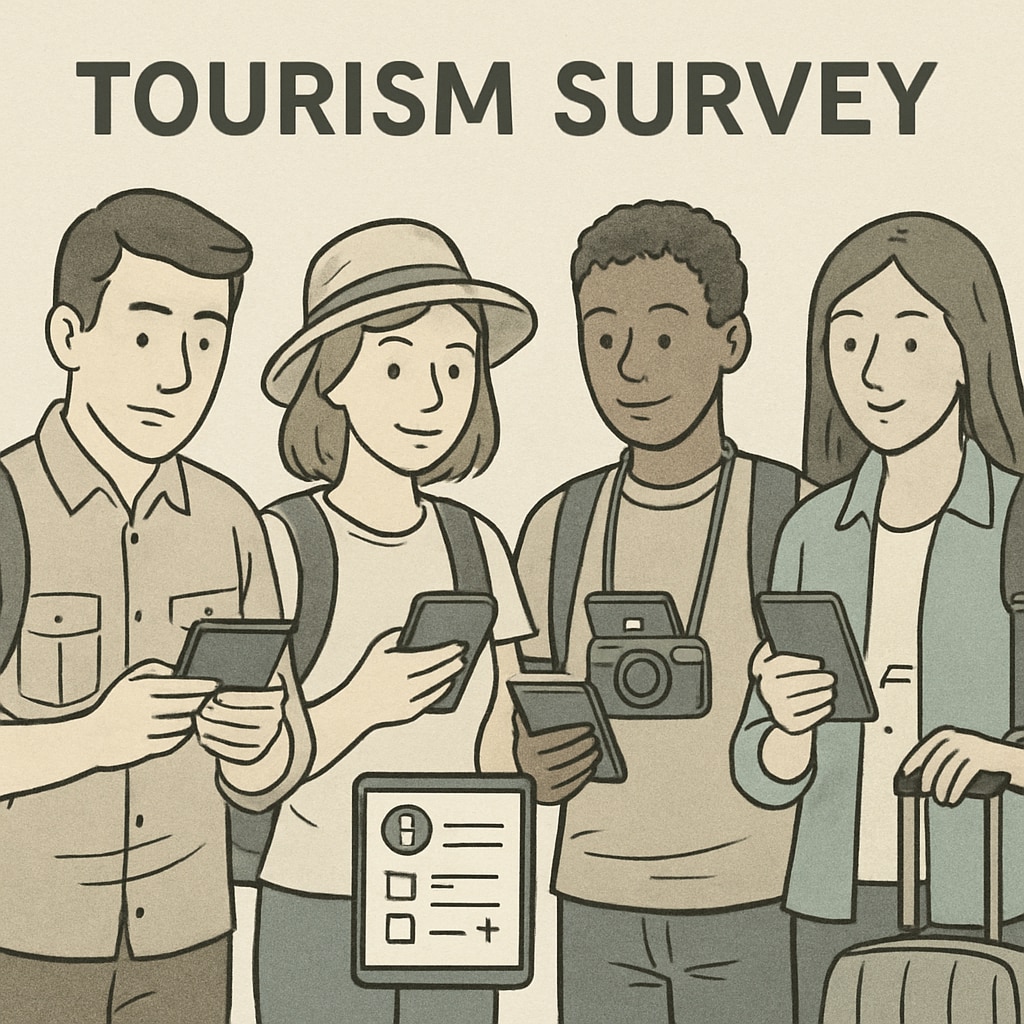Conducting research for a master’s thesis often involves collecting reliable and relevant data. For studies focused on tourism short videos, this process can be particularly complex due to the niche subject matter and the reliance on survey data collection as a primary methodology. Successfully gathering data requires overcoming challenges such as respondent participation, data quality, and ensuring the integrity of the study.
Key Challenges in Survey Data Collection
One of the most significant hurdles in survey-based research is obtaining a sufficient number of responses from a diverse and representative sample. Whether the study targets frequent travelers, social media users, or content creators, identifying and engaging the right demographic requires thoughtful planning. Additionally, participants may exhibit survey fatigue, leading to incomplete or unreliable responses.
Moreover, the subject of tourism short videos introduces unique difficulties. Respondents may not fully understand the topic or the relevance of such videos in the tourism industry. This can result in superficial answers or a lack of meaningful insights. Researchers must also contend with ethical considerations, such as maintaining respondent anonymity and ensuring informed consent.

Strategies for Effective Data Collection
To address these challenges, researchers must implement focused strategies that encourage participation and improve data quality. For example:
- Clear and Engaging Survey Design: Surveys should feature straightforward language and concise questions tailored to the respondent’s familiarity with tourism and social media trends.
- Targeted Distribution Channels: Utilizing platforms like travel forums, social media groups, and professional networks can help reach relevant respondents more effectively.
- Incentives: Offering small rewards, such as gift cards or exclusive content, can increase participation rates and motivate respondents to provide thoughtful answers.
- Pre-testing: Conducting pilot surveys ensures that questions are clear and elicit useful responses before launching the full-scale study.
Additionally, leveraging technology can enhance data collection by automating reminders and providing mobile-friendly survey formats. Tools like Google Forms or specialized survey platforms such as Qualtrics can simplify the process while ensuring high-quality feedback.

The Role of Tourism Short Videos in Academic Research
Tourism short videos are increasingly recognized as influential tools in shaping travel decisions and promoting destinations. Researchers studying this phenomenon must grasp its interconnected nature with digital marketing, social media algorithms, and consumer behavior. Surveys allow scholars to explore how viewers perceive these videos, whether they inspire travel plans, and how they align with broader tourism trends.
For example, a recent study highlighted on Britannica showed the growing importance of visual content in tourism marketing. Similarly, Wikipedia’s tourism overview underscores the role of digital channels in influencing tourist behavior. By collecting survey data, researchers can build evidence-based conclusions to enhance our understanding of this dynamic field.
Practical Requests for Respondents
To ensure the success of survey data collection, researchers often need to reach out to prospective respondents with clear and persuasive communication. Here are practical steps for inviting participation:
- Personalized Invitations: Tailoring messages to specific groups, such as frequent travelers or content creators, increases the likelihood of engagement.
- Transparency: Explaining how the study contributes to academic research in tourism and clarifying the time commitment builds trust.
- Flexible Formats: Providing options for online or offline participation ensures accessibility for all respondents.
By fostering mutual understanding and emphasizing the value of their input, researchers can gain the cooperation necessary for meaningful data collection.
In conclusion, collecting survey data for a master’s thesis on tourism short videos requires overcoming several challenges, including respondent engagement, data accuracy, and ethical considerations. Implementing effective strategies and fostering collaboration can ultimately enrich the study and contribute valuable insights to the academic field of tourism research.


